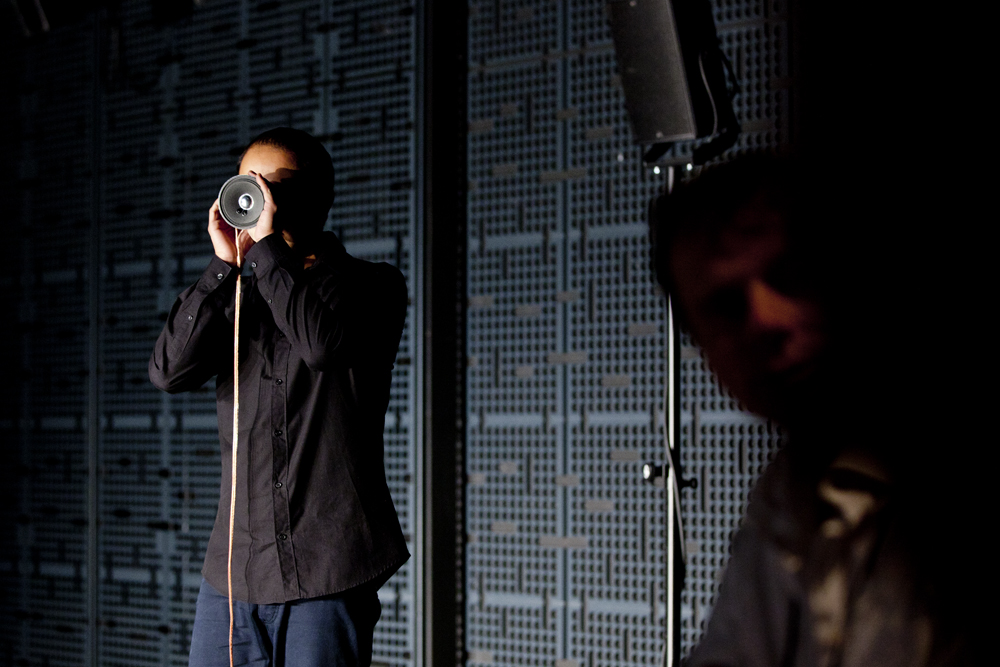International collaborations at MuTeFest’20
MuTeFest’20 is just a few weeks away, and it’s a perfect time to share more about the festival’s behind-the-scenes, unique sound experiences, and exciting line-up on offer this year.

An interview with Alejandro Olarte, an electroacoustic musician, lecturer at the Center for Music and Technology, and one of the MuTeFest programmers touches upon the festival’s philosophy and its international exchange. Read on for tips on the best resources to learn more about music & technology post-MuTeFest.
MuTeFest programming is unique in a sense of combining teaching and showcasing diverse artistic projects by students of the Center for Music and Technology (MuTe) at the Sibelius Academy. How does programming for MuTeFest happen and what are the key aspects of the selection process?
AO: “MuTeFest has been conceived as a platform to showcase the artistic activity produced at the music technology department. Teachers and students are encouraged over the year to think about the festival, and around the spring we collect the ideas and produce the first draft of concert themes to which other projects can join during next fall. The department has been very supportive of the artistic activities, always finding ways to guide and help the initiatives presented.
There is no selection process as such, but I would describe the process more as a guide to accomplish an artistic/musical project. Over the years, we have learned that the process is more effective when the projects are tied to a course or tuition given at the department in that way a teacher can overview the process and be of more effective help.”
Collaboration is at the core of MuTeFest. Every year, through different projects the students and teachers of the MuTe department are joined by students from other Uniarts departments and universities, alumni, local and international musicians. This year, Synthestra, an orchestra of synthesisers hosted by Jimi Tenor, will play once again as part of the festival. A great example of the cooperation with the local music scene.
Another sound treat on the programme, Speakers Gonna Sing concert, is an international cooperation between music schools. What are the opportunities and challenges (COVID-19 aside) of such international cooperation in the context of student festivals?
AO: “International collaborations at the university level allow young artists to expand their audiences, to make their work known beyond the local academic contexts, to interact with colleagues and potential future collaborators in the vicinity of their countries. The challenges may relate to the need to adapt fast to different working cultures or unexpected professional situations, but these are always enriching experiences that leave lasting traces in people’s memories.”
How was the collaboration between the music schools developed to work on the Speakers Gonna Sing?
AO: “The collaborations and artistic exchanges with our Baltic and Nordic colleagues are tied with the history of the department and we are eager to find paths and opportunities for it to happen or to facilitate it. This particular concert comes from the interaction with the teachers Malle Maltis, Einike Leppik and Paolo Girol from the Estonian Academy of Music and Theatre in Tallinn; I personally meet them during the “NORD+MIX”, an educational project lead by the Music Innovation Studies Centre at the Lithuanian Academy of Music and Theatre focused on Sound Spatialisation and electroacoustic music, for which our department has actively contributed with teachers and students participation over several years.”
What, in your opinion, is the most interesting aspect of this collaboration?
AO: “The opportunity to share and exchange music made for multichannel sound systems. These systems allow composers to explore the musical potential opened by the disposal of a multitude of loudspeakers. There is a strong tradition dating from the 70s investigating the spatial possibilities offered by such electroacoustic instruments or setups, however, the complexity of them requiring dedicated facilities, a lot of hardware, calibration, and maintenance make these systems not widely available, for example, compared with stereo systems. In consequence, it is a great opportunity to listen, share, and promote music specifically designed and composed for such multichannel configurations.”
The concert will be available via streaming as all other concerts on the programme, which means that many more people would be able to join the MuTeFest community. For those who stream the MuTeFest concerts this November and feel inspired to learn more, what are your recommended sources to discover music & technology?
AO: “The university channels of course, but on the internet there is an incredible number of groups, lists, and platforms, dedicated to electroacoustic, electronic music, sound art, sound design, experimental art and any possible variation on the topic of music and technology. Many libraries around the country have good music and book selection relevant to the topic, but maybe my favourite recommendation is to come and knock on the door of our department, we will be glad to give you a tour or have a chat.”
MuTeFest concerts will stream online this year. Keep an eye on the website and MuTe social media channels to learn more about the programme and how to access the concert streaming online.
Interview prepared by Elizaveta Bomash